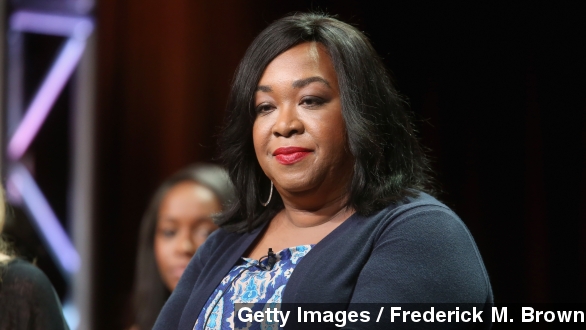One doesn't need to look far to see backlash against The New York Times over its profile of writer and producer Shonda Rhimes published Wednesday. There were plenty of critical headlines.
The article itself, penned by TV critic Alessandra Stanley, praises Rhimes’ work on “Scandal,” “Grey’s Anatomy” and “How to Get Away with Murder." But that's been largely overlooked, mainly because Stanley led the piece by suggesting Rhimes call her autobiography, “How to Get Away With Being an Angry Black Woman.”
Rhimes herself took issue with the article's description of her as "angry" and a romance writer. On Twitter, she seemed, well, pretty annoyed with it.
And Vulture’s Margaret Lyons calls the Times story, “inaccurate, tone-deaf, muddled and racist,” then tears into Stanley's article paragraph by paragraph.
A key argument for many of the articles written in response to Stanley’s piece is that Rhimes' characters, “Scandal’s” Olivia Pope, “Grey’s Anatomy’s” Dr. Bailey and “Murder’s” Annalise Keating aren’t all just angry black women. While they get angry at some points, just as any television character does, thats not the emotion that defines them.
Slate describes Pope as “conflicted, tortured, in a self-destructive relationship — but she is never anything but ultra-competent.” Grey’s Anatomy’s Dr. Bailey is described as having “a kind of faux-anger, behaving like a grump and a curmudgeon to cover up her huge heart.”
The Washington Post says, by defining all of Rhimes’ characters as “angry black women,” Stanley is doing them a disservice: “There is something dangerous and political about defining down ‘angry’ in this way. When a person is characterized as ‘angry,’ we weigh their arguments and behavior differently than we would if we see them as generally calm and measured.”
Stanley has responded to the backlash on her article, telling TheWrap “The whole point of the piece — once you read past the first 140 characters — is to praise Shonda Rhimes for pushing back so successfully on a tiresome but insidious stereotype.”
As for general advice on how The New York Times can avoid stirring up such a ruckus in the future, The Huffington Post had this suggestion.
"From now on, when trying to take down a beloved and powerful producer, it may be best to not totally associate the creator — or executive producer — with their shows' characters, or more specifically, with characters of one race."
This video includes images from Getty Images.


